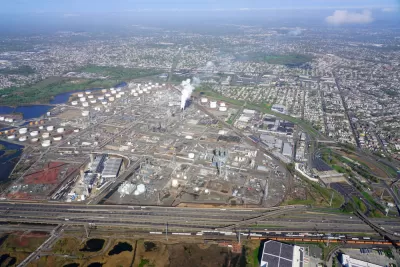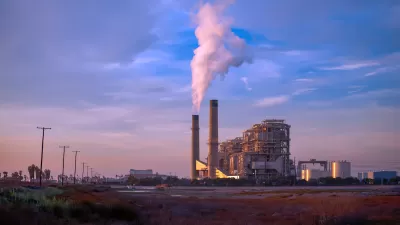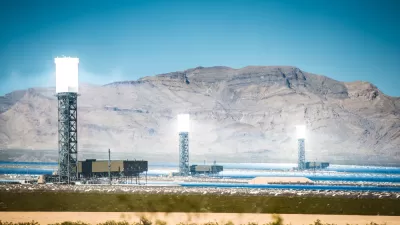The consequences of this ruling have long been foretold. With the U.S. Environmental Protection Agency now officially barred from the fight against climate change, Congress will have to act to reduce carbon emissions.

“The Supreme Court limited the Environmental Protection Agency’s ability to regulate carbon dioxide emissions from power plants in a 6-3 ruling handed down Tuesday that will have far-reaching implications on the federal government’s ability to fight climate change,” reports Ben Adler for Yahoo News.
The case, West Virginia v. EPA, asked the Supreme Court to consider whether the U.S. EPA under the Trump administration violated the Clean Air Act by weakening planned limits on carbon emissions from power plants. The decision, according to Adler, “[signals] to future administrations that the pollution causing climate change can go effectively unregulated, and leaving the job of passing binding emissions restrictions to Congress.”
“The court further agreed with a collection of Republican-led states and coal industry groups that the EPA, because its head is a political appointee, cannot accelerate the power sector’s transition from fossil fuels to clean energy because that goes beyond the powers granted to the EPA under the Clean Air Act,” adds Adler.
The Clean Power Plan, released in 2015 by the U.S. EPA under the Obama administration, was considered the nation’s most significant emissions reduction effort, but the Clean Power Plan never took effect, after the U.S. Supreme Court suspended the plan in February 2016 after a bipartisan coalition of 24 states sued the Environmental Protection Agency in October 2015. The Trump administration replaced the rule in 2019 with the “Affordable Clean Energy Plan.”
Enter the legal battle that preceded today’s ruling. Adler explains:
Petitioners such as the American Lung Association sued to get the rule reinstated, arguing that the Clean Power Plan was legally valid and the Trump-era replacement known as the Affordable Clean Energy (ACE) rule, which did not require anything except modest gains in efficiency from coal-fired plants, was too weak to meet the EPA’s legal obligation to regulate carbon dioxide. (In 2007, the Supreme Court ruled 5-4 in Massachusetts v. EPA that the EPA is required to regulate carbon dioxide because it causes climate change, and the Clean Air Act mandates that the agency regulate “any air pollutant” that can “reasonably be anticipated to endanger public health or welfare.”)
Eventually, West Virginia challenged that ruling, leading to the decision announced today.
FULL STORY: Supreme Court invalidates 'important tool' to regulate climate pollution

Planetizen Federal Action Tracker
A weekly monitor of how Trump’s orders and actions are impacting planners and planning in America.

Maui's Vacation Rental Debate Turns Ugly
Verbal attacks, misinformation campaigns and fistfights plague a high-stakes debate to convert thousands of vacation rentals into long-term housing.

Cuomo Is the Candidate of Both NIMBYs and Developers. What Gives?
In the New York City mayoral race, odd bedfellows align to preserve the housing status quo.

The Subversive Car-Free Guide to Trump's Great American Road Trip
Car-free ways to access Chicagoland’s best tourist attractions.

San Antonio and Austin are Fusing Into one Massive Megaregion
The region spanning the two central Texas cities is growing fast, posing challenges for local infrastructure and water supplies.

Charlottesville Temporarily Has No Zoning Code
A judge ordered the Virginia city to throw out its newly revised zoning code, leaving permitting for new development in legal limbo.
Urban Design for Planners 1: Software Tools
This six-course series explores essential urban design concepts using open source software and equips planners with the tools they need to participate fully in the urban design process.
Planning for Universal Design
Learn the tools for implementing Universal Design in planning regulations.
Heyer Gruel & Associates PA
JM Goldson LLC
Custer County Colorado
City of Camden Redevelopment Agency
City of Astoria
Transportation Research & Education Center (TREC) at Portland State University
Jefferson Parish Government
Camden Redevelopment Agency
City of Claremont





























